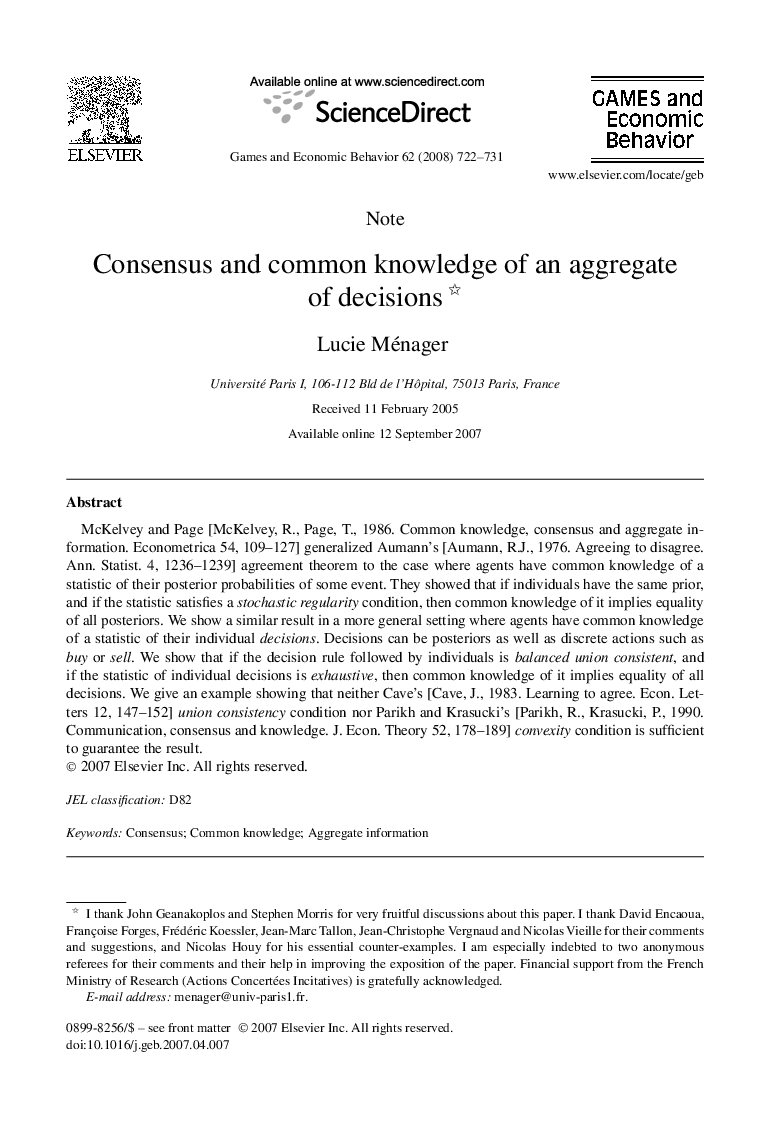| Article ID | Journal | Published Year | Pages | File Type |
|---|---|---|---|---|
| 5072729 | Games and Economic Behavior | 2008 | 10 Pages |
McKelvey and Page [McKelvey, R., Page, T., 1986. Common knowledge, consensus and aggregate information. Econometrica 54, 109-127] generalized Aumann's [Aumann, R.J., 1976. Agreeing to disagree. Ann. Statist. 4, 1236-1239] agreement theorem to the case where agents have common knowledge of a statistic of their posterior probabilities of some event. They showed that if individuals have the same prior, and if the statistic satisfies a stochastic regularity condition, then common knowledge of it implies equality of all posteriors. We show a similar result in a more general setting where agents have common knowledge of a statistic of their individual decisions. Decisions can be posteriors as well as discrete actions such as buy or sell. We show that if the decision rule followed by individuals is balanced union consistent, and if the statistic of individual decisions is exhaustive, then common knowledge of it implies equality of all decisions. We give an example showing that neither Cave's [Cave, J., 1983. Learning to agree. Econ. Letters 12, 147-152] union consistency condition nor Parikh and Krasucki's [Parikh, R., Krasucki, P., 1990. Communication, consensus and knowledge. J. Econ. Theory 52, 178-189] convexity condition is sufficient to guarantee the result.
